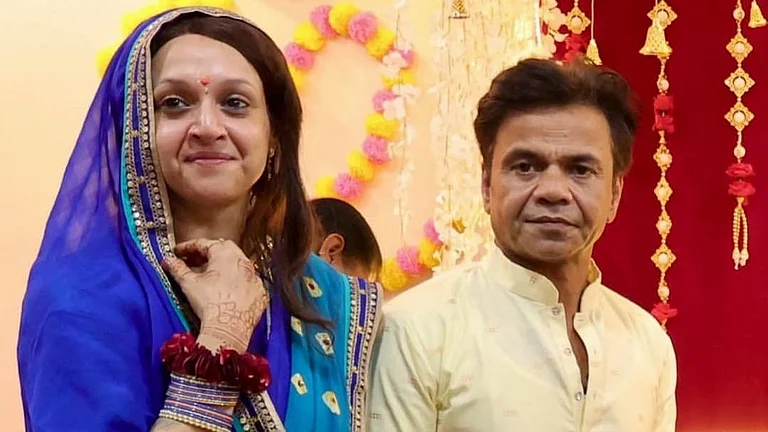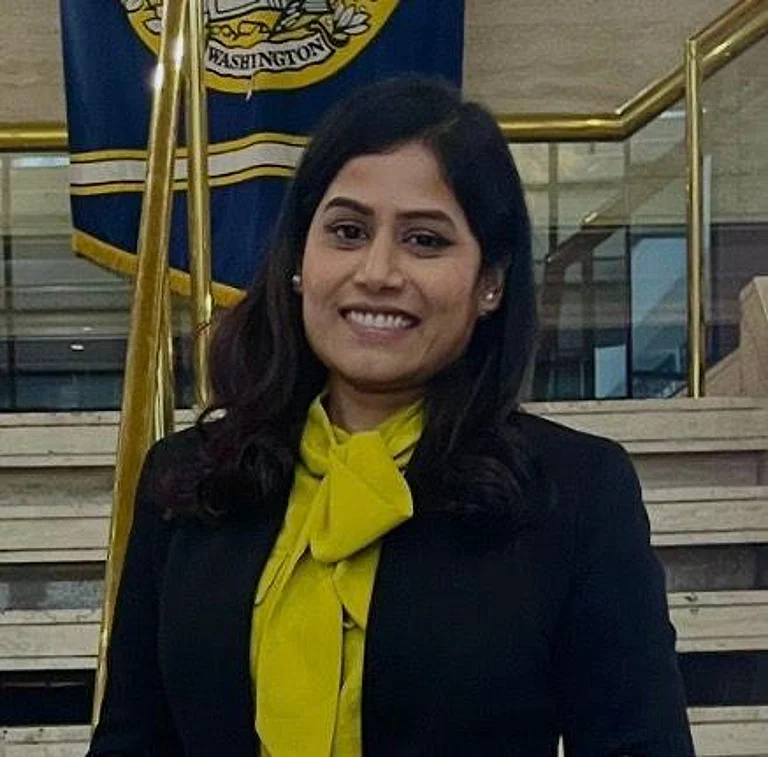In what finally decided whose Shiv Sena it is, Maharashtra Speaker Rahul Narwekar on Wednesday announced his verdict on the cross-petitions by party factions seeking disqualification of each other's MLAs and gave Chief Minister Eknath Shinde and his camp the tag of the "real political party".
Maharashtra Speaker Rahul Narwekar delivered the verdict on the disqualification petitions against Chief Minister Eknath Shinde and several MLAs whose rebellion had split the Shiv Sena in June 2022. In his 105-minute-long reading of the key points of the much-awaited ruling on the cross-petitions, Narwekar rejected the Uddhav Thackeray faction’s petition to disqualify 16 MLAs of the ruling group, including Shinde, and also did not disqualify anyone from the Uddhav camp.
While reading out the verdict, Narwekar asserted that the Shiv Sena Constitution submitted to the Election Commission would be considered as the real one.
Narwekar announced the Eknath Shinde faction as the 'real Shiv Sena' after a detailed explanation of his observation, the crux of which was that the constitution of the party was relevant to decide which was the real party as the constitution lays down the leadership structure. Narwekar said that the constitution of undivided Shiv Sena was amended in 2018 but it was not on the records, hence the constitution of 1999 which was submitted to the Election Commission of India was considered.
There was no organisational election in 2018, Narwekar highlighted.
Shiv Sena Disqualification Issue Explained and Verdict Broken Down
Timeline
- June 21, 2022: After Eknath Shinde and a group of Shiv Sena MLAs rebelled against then CM Uddhav Thackeray, Uddhav’s faction passed a resolution removing Shinde as the leader of the legislature party and appointed Ajay Choudhari in his place. Sunil Prabhu was appointed the chief whip of the party.
- Same day: On June 21 itself, the Shinde faction passed a resolution that Shinde would continue to lead the legislature party and appointed Bharatshet Gogawale as the chief whip. Rahul Narwekar, who was elected Speaker after the collapse of the MVA government, accepted the resolution on July 3, 2022.
- Two days later: After the split in the Sena, the first set of disqualification pleas was filed against Eknath Shinde and 15 other MLAs for not attending a meeting that Sunil Prabhu, the chief whip appointed by Uddhav faction, had convened.
- June 27, 2022: Another set of disqualification pleas was filed against 22 more MLAs of the Shinde-led faction, following which petitions were filed against two more MLAs, bringing the total number to 40.
- In tit-for-tat, the Shinde Sena filed petitions seeking the disqualification of 14 Shiv Sena (UBT) legislators. Sunil Prabhu challenged these counter-petitions in the Supreme Court.
Breakdown Of Verdict
To sum the verdict up in simple terms, Maharashtra Speaker Rahul Narwekar on Wednesday said that amid the cross-petitions by factions claiming to be the real political party, the conclusion has to be drawn by giving weightage to the constitution of Shiv Sena, the leadership structure of the party, and the legislative majority.
- What Speaker Said On Constitution Of Shiv Sena: Maharashtra Speaker Rahul Narwekar said that the Shiv Sena Constitution that will be considered valid is the one submitted to the Election Commission of India (EC). Narwekar said that the constitution of undivided Shiv Sena was amended in 2018 but it was not on the records, hence the constitution of 1999 which was submitted to EC was considered.
- Thackeray As 'Pramukh' Had No Power To Remove Anyone: Narwekar, citing the party constitution submitted available with the EC, said Shiv Sena ‘pramukh’ (chief) did not have the power to remove any leader from the party, meaning Uddhav Thackeray did not have the authority to remove Eknath Shinde at the time of the rebellion as per the 'valid party constitution.
Thackeray group's contention that the amended constitution of 2018 should be relied on was not acceptable, Narwekar said.
- Leadership Structure Of The Party: Speaker Narwekar said 'paksha pramukh' is mentioned as the highest office in the 2018 constitution which was not in conformity with the constitution that is submitted to the EC.
The 1999 Shiv Sena constitution said the national executive, not the 'paksha pramukh', was the highest body, Narwekar pointed out, denoting that the party constitution said the 'paksha pramukh' does not have any absolute power and he has to consult with the national executive.
Going by the above, Uddhav Thackeray as 'paksha pramukh' had no power to remove Eknah Shinde from the post of the legislature party leader. "Uddhav's decision is not the will of the political party," Narwekar said.
- Legislative Majority: The Speaker also noted that the Shinde group had an overwhelming majority of 37 out of the total 54 Sena MLAs when the rival factions emerged in June 2022. Moreover, the Speaker said the Uddhav camp claimed that the Shinde faction acted in connivance with the BJP, a claim which cannot be accepted no evidence for it was provided.
LISTEN IN
Does The Verdict Change Anything In Maharashtra Government?
The majority mark in 288-seat Maharashtra assembly is 145, with BJP, NCP, Shinde-led Shiv Sena faction and independents having 197+ seats in their kitty. In simple terms, the verdict does not damage the government in any way.
Of 54 MLAs in question of the undivided Shiv Sena, 40 are with Shinde while 14 are of the Uddhav faction.
Even though the verdict does nothing to the Maharashtra government, it is a big turning point in the Shiv Sena legacy war, for which Eknath Shinde and Uddhav Thackeray camps have been at loggerheads for months now. They even approached the Election Commission of India to stake claim over the party's name and symbol.
The Election Commission had given the 'Shiv Sena' name and 'bow and arrow' symbol to the Shinde-led faction, while the one headed by Thackeray was to be called Shiv Sena (UBT) with its symbol being a flaming torch.
The Shiv Sena verdict is a major setback to Uddhav Thackeray whose father Balasaheb Thackrey founded the party in 1966.



























